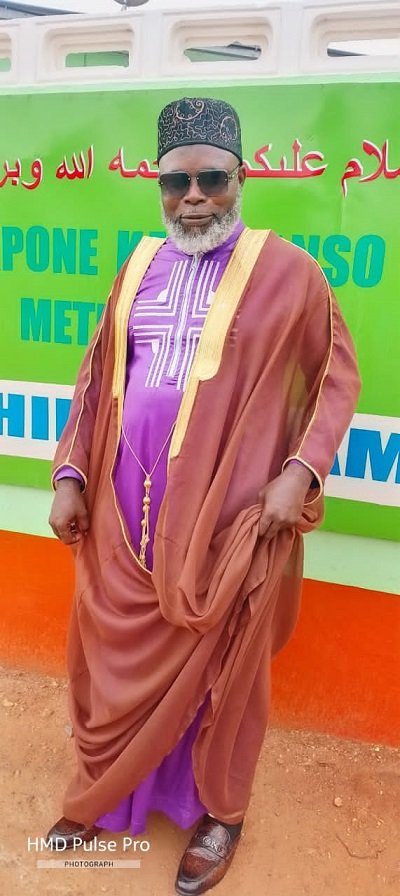Fruitful Living
25 ways to set your mind on things above (Part 1)
INTRODUCTION
The apostle Paul told us to set our minds on“things above,” that is, heavenly things, not on things on the earth,” that is, earthly things – Colossians 3:2. We need to be intentional about the information we feed our minds with and what we process with our minds.
Do not be anxious about anything, but in everything, by prayer and petition, with thanksgiving, present your requests to God. And the peace of God, which transcends all understanding, will guard your hearts and your minds in Christ Jesus – Philippians 4:6
SETTING OUR MIND ON THINGS ABOVE.
- ADOPT A HEAVENLY MINDSET
In Romans 12:2, we find another excellent piece of advice from the apostle Paul. He wrote that we should be “transformed by the renewing of our minds” Romans 12:2. How do we do that? The same Bible verse tells us not to be “conformed to this world” – Romans 12:2. We should not allow our minds to be shaped by the present world but by God’s Word. Our mindset needs to be changed. We need to let go of values and habits that don’t agree with God’s will and adopt a new mindset built upon the truth from Scripture.
- FOCUS YOUR THOUGHTS ON THE RIGHT THINGS
Paul’s exhortation in Philippians 4:8 teaches us to be very selective with what should occupy our thoughts. This Bible verse tells us to think about things that are: True, Honest, Just, Pure, Lovely, Admirable, Virtuous, worthy of praise and if something doesn’t fit any of these categories, we should not allow it into our thought life.
- ACKNOWLEDGE YOUR DEPENDENCY UPON GOD
If we want to produce real change in our minds and hearts, we need God’s help. He is the One that can help us desire and pursue change Philippians 2:13. No matter how hard we try on our own, we won’t be able to overcome our sinful human nature without God working in us through His Holy Spirit Galatians 5:16-17.
- LET THE HOLY SPIRIT BE YOUR HELPER
The Holy Spirit dwells in every child of God John 14:17. He will help us keep our minds on heavenly things in many ways, such as:
- Teaching us and reminding us of the words of Christ Jesus John 14:26.
- Leading us Romans 8:14.
- Assuring us that we are children of God (Romans 8:16).
- Interceding for us Romans 8:26.
- Guiding us into all truth John 16:13.
- Empowering us Acts 1:8; 1 Corinthians 12:11.
And much more! Ask the Holy Spirit to be your helper, to help you discern and seek the important things John 14:16.
- RESIST THE DEVIL
This is what the apostle James has told us to do. By resisting the devil, he will flee from us James 4:7. To resist means to oppose, to withstand against him. We resist the devil as Jesus did: through prayer, fasting, and God’s Word Luke 4:1-13.
We need to be aware of the enemy’s strategies so we don’t fall into his traps 2 Corinthians 2:11; 1 Peter 5:8. Since this battle occurs mostly in our minds, we need to resist the devil so that we can focus our minds on the things of God.
- PUT ON THE FULL ARMOUR OF GOD
This is a known illustration Paul used to advise us in our fight against the evil one and its army Ephesians 6:10-17. The components of the armour of God are:
- Belt of truth: to fight the devil’s lies.
- Breastplate of righteousness: Jesus’ righteousness (not ours!) protects our hearts from the devil’s attacks.
- Shoes of the gospel of peace: to stand firm and advance into the enemy’s territory to proclaim the name of the Lord Jesus Christ.
- Shield of faith: to extinguish the attacks by the enemy.
- Helmet of salvation: to protect our minds.
- Sword of the Spirit: this is the Word of God, which is our weapon of defence and attack Matthew 4:3-11.
Keep in mind that prayer is a key element in the battle Ephesians 6:18
- GUARD YOUR HEART
What does that expression from Proverbs 4:23 mean? In biblical terms, the “heart” is the centre of the will, thoughts, feelings, and desires. Nowadays, we say those things are in our minds. So, that expression means that we need to protect our minds from worldly things. Exposing ourselves to ungodly things that ignite our temptations can cause us to sin Matthew 26:41; James 1:14-16; 1 John 2:15-17.
- LET GO OF YOUR OLD SELF
In Ephesians 4:20-23, Paul tells us to put off our old self (our sinful nature) and put on our new self (the new creation Paul talks about in 2 Corinthians 5:17. This illustration reminds us of a person changing clothes. Paul urges us to let go of our fallen nature, with its evil desires and worldly lusts, and embrace our new holy nature. It all begins in our minds by letting go of worldly thoughts and actions that lead us to sin and pursuing holiness 1 Peter 1:14-16.
- LEARN TO DISCERN WHAT IS TEMPORARY FROM WHAT IS ETERNAL
Everything in this world is temporary; it all belongs to a creation that will be renewed in the end Revelation 21:1. We need to keep that in mind and understand that what really matters are the eternal things 2 Corinthians 4:18. We should set our minds and energy into making an eternal impact with our lives, not living for the things of the world. Our lives must be dedicated to God and the things that please Him.
- SEE THE WORLD FROM GOD’S PERSPECTIVE
Doing this helps us deconstruct the lies the world has taught us our entire lives. Let us start by observing how Jesus and the apostles lived. Let’s start by reading the New Testament and pay attention to these questions:
- What occupied their time?
- What were their priorities?
- What mattered to them?
- How did they relate to the things of this world?
For example, in the episode of Jesus’ temptation, we see the Lord refusing things of this earth, like food, riches, fame and power, in order to obey God’s Word Luke 4:1-13. The Kingdom of God was His priority over whatever the devil could offer Him from the things of earth. His was a heavenly perspective.
- LET LOVE BE YOUR MOTIVATION
Paul begins the well-known chapter about love in 1 Corinthians chapter 13 by saying that everything we say, do, and give must be out of love; otherwise, it all comes down to nothing 1 Corinthians 13:1-3. God’s love must dwell in us, through the Holy Spirit, so our love for Him and others will be the driving force for what we think and do 1 Corinthians 16:14.
- ACKNOWLEDGE THE PRESENCE OF GOD IN YOUR LIFE
You cannot do it alone. But the good news is that God is with you Isaiah 41:10. This assurance helps us focus on what matters, on the things of heaven. We don’t depend upon our own strength; we depend upon God! So, when you feel weak, when your mind slips into negative thoughts, remember that God is there with you, even if it doesn’t seem so.
- SEEK GOD’S WISDOM
We need God’s wisdom to help us focus our minds and hearts on the things of the Kingdom of God. Here are some suggestions to help you seek wisdom from God:
- Be humble and acknowledge you need it Proverbs 3:7, 18:15.
- Know that all wisdom comes from God Proverbs 2:6.
- Study the Bible. Start by meditating on Jesus’ life in the New Testament and the book of Proverbs in the Old Testament.
- Pray and ask God to give you wisdom James 1:5.
- Welcome advice from more experienced followers of Jesus and learn from those who belong to the body of Christ Proverbs 19:20; Colossians 3:16.
To be continued!
Stay Blessed!
For further inquiries please contact us on Tel Nos. 0243588467 or 0268130615
Email: saltnlightministries@gmail.com
Website: saltandlightministriesgh.org
By Dr Joyce Aryee, the author
Fruitful Living
Eid-ul-Adha: A living legacy of faith, sacrifice, and devotion

We begin in the name of Allah, the Most Merciful, the Most Compassionate. We praise Him, seek His help and forgiveness, and seek refuge in Him from the evils of our souls and the wrongs of our actions.
May peace and blessings be upon the Prophet Muhammad (peace be upon him), his family, his noble companions, and all those who follow his path until the Day of Judgment.
Understanding the essence
of Eid-ul-Adha
Eid-ul-Adha, the Festival of Sacrifice, is one of the two major Islamic celebrations observed by Muslims across the world.
It commemorates the unwavering submission of Prophet Ibrahim (Abraham, peace be upon him) to Allah’s command when he was prepared to sacrifice his beloved son Isma’il (Ishmael, peace be upon him). Allah, in His infinite mercy, intervened and replaced the son with a ram, thus honouring Ibrahim’s sincerity and faith.
This moment of sacrifice is recorded in the Qur’an: “Then when they had both submitted and he put him down upon his forehead, We called out: ‘O Ibrahim! You have fulfilled the vision.’ Indeed, We thus reward the doers of good.” (Surah As-Saffat, 37:103–105)
This act of obedience is not merely a historical account. It is a living symbol that forms the essence of Eid-ul-Adha.
Ibrahim (A.S): The Architect
of Submission
Before the moment of sacrifice, Prophet Ibrahim and his family played critical roles in establishing Islam’s foundational pillars:
1. The building of the Ka‘bah
Prophet Ibrahim and his son Isma’il were chosen to construct the Ka‘bah, the sacred House of Allah in Makkah. The Qur’an records this noble moment:
“And [mention] when Ibrahim was raising the foundations of the House and [with him] Isma’il, [saying], ‘Our Lord, accept [this] from us. Indeed, You are the Hearing, the Knowing.’”
(Surah Al-Baqarah 2:127)
This structure remains the spiritual centre of Muslim worship, facing which over a billion Muslims direct their daily prayers.
2. The struggle of Hajar (Hajara) between Safa and Marwa
The mother of Isma’il, Hajar (Hajara), exemplifies a profound lesson of patience and faith. Left in the barren valley of Makkah with her infant, she ran between the hills of Safa and Marwa, desperately searching for water. Her perseverance was rewarded when the well of Zamzam sprang forth at the feet of her baby.
Her sincere struggle is now ritualised in Hajj as the Sa‘i between Safa and Marwa—a reminder of the role of women, the power of du‘a, and the value of trust in Allah’s provision.
Sacrifice at Mina and the
Rites of Jamarat
During Hajj, pilgrims reenact Ibrahim’s confrontation with Shaytan at Mina, where he rejected the devil’s temptation and cast stones at him. This act is now observed in Hajj as the ritual of stoning the Jamarat, symbolising the rejection of evil, temptation, and disobedience.
It is a vivid spiritual lesson: the path to Allah is one of resistance to distraction and sin, and one must be prepared to fight these forces with unwavering faith.
The essence of Arafat in Hajj
The Prophet Muhammad said:“Hajj is Arafah.” (Sunan al-Tirmidhi, 889)
Standing on the plain of Arafat, in deep humility and supplication, is the heart of Hajj. It represents the Day of Judgment, when all of humanity will stand before their Creator. The Prophet said: “There is no day on which Allah frees more people from the Fire than the Day of Arafah.” (Sahih Muslim, 1348)
For pilgrims, Arafat is a time of repentance, reflection, and renewal— and for non-pilgrims, fasting on that day is highly recommended.
Three core lessons from the
Sacrifice of Prophet Ibrahim
(A.S.)
1. Absolute obedience to Allah
Ibrahim’s willingness to sacrifice his son teaches that the essence of faith is unquestioning obedience to Allah. He prioritised divine command over emotion, logic, or comfort.
Takeaway:
In our lives, we must also be ready to put aside our desires, egos, and even attachments if they conflict with Allah’s instructions. This may involve sacrifices such as waking up for Fajr, staying away from haram income, or being truthful in difficult situations.
2. Sincere intention and inner sacrifice
The real essence of the sacrifice lies in the heart’s submission to Allah.
It is neither their meat nor their blood that reaches Allah, but it is your piety that reaches Him.”
(Surah Al-Hajj 22:37)
Takeaway:
Every act of worship should be grounded in sincerity. Whether it is prayer, charity, or sacrifice, what matters most is the purity of our intention.
3. Sacrifice for the greater good
The legacy of Eid-ul-Adha teaches us that sometimes, faith requires us to give up what we love for a greater purpose. Sacrificing wealth, time, or status in the path of Allah or for the benefit of others leads to spiritual elevation.
Takeaway:
Use your resources such as time, money, skills, for acts of benefit: support the poor, educate the young, assist the sick, and build your community.
Celebrating Eid-ul-Adha: A
Festival for all Muslims
Even for those who do not go on Hajj, Eid-ul-Adha holds immense significance. Muslims across the world participate in the act of Qurbani (sacrifice) to honor the tradition of Ibrahim (A.S.).
Types of animals and their
symbolism
Permissible animals include goats, sheep, cows, and camels. Each must meet a minimum age and be free of defects. The sacrificed animal is then divided into three parts: one for the family, one for relatives and friends, and one for the poor and needy.
This distribution reflects the spirit of sharing, compassion, and social responsibility—values at the heart of Islam.
The eternal message of Eid-ul-Adha
Eid-ul-Adha is not merely a celebration; it is a living tradition that calls us to:
• Submit like Ibrahim,
• Strive like Hajar,
• Sacrifice like Isma’il,
• Reflect like the pilgrims at Arafat.
May this Eid awaken within us a renewed commitment to obedience, sincerity, and compassion.
Let us make every Eid-ul-Adha a step forward in our spiritual journey, embodying the values of submission, sacrifice, and service to humanity. I wish every Muslim Eid Mubaarak
By Imaam Alhaji Saeed Abdulai
(Kpone Katamanso Metropolitan Chief Imaam)
Fruitful Living
Steps taken by government to combat illicit drugs (Final part)
The Minister for the Interior, Muntaka Mohammed-Mubarak, has reaffirmed the government’s commitment to combating drug abuse and illicit trafficking for a safer environment which would
go a long way to make Ghana a drug-free country. 3News.com (2025)
Solutions to Illicit Drugs from the Islamic perspective
are comprehensive and emphasise of both prevention and treatment:
Tarbiyah (Islamic nurturing): Instilling strong Islamic values from childhood through Qur’anic education, regular prayer, and association with righteous companions.
Community preaching (Da’wah): Imams must consistently raise awareness during khutbahs and Islamic programs about the dangers of drugs and the beauty of a sober, productive life.
Faith-based rehabilitation: Mosques and Islamic centers can partner with medical institutions to offer Qur’an therapy, spiritual counseling, and structured recovery programs.
Islamic youth clubs: Providing youth with halal entertainment, mentorship, and purposeful engagement can steer them away from harmful peer groups.
Zakat and Sadaqah: Channelling funds to support families of victims and establishing centres for rehabilitation.
Role of Parents, Society, Muslim Chiefs and Imams:
Parents must be vigilant and provide emotional support. A loving, nurturing home reduces a child’s vulnerability to drugs.
Society should de-stigmatize addiction. Drug users should be seen as patients needing healing, not criminals deserving rejection.
Muslim Chiefs must lead community campaigns, setting moral examples and supporting policy enforcement.
Imams must be more than religious leaders—they must become counsellors, educators, and advocates. Their leadership can shift public perception and guide collective action.
Conclusion
Illicit drugs pose one of the most dangerous threats to our society, undermining our religious values, harming our youth, and destroying our future. The Islamic position is clear and
Unequivocal: such substances are forbidden due to their destructive consequences on all aspects of life. Islam does not merely condemn the act but calls for a holistic response—spiritual, social, and structural.
As a society, particularly as Muslims, we must rise to confront this crisis with faith, compassion, and commitment. We must not only preach against drugs but actively work to rehabilitate victims, educate the next generation, and partner with public institutions to create a society of wellness and righteousness.
Recommendations
1. Introduce Islamic drug awareness education in madrasas and public schools, using Quran and Hadith-based materials to instill moral responsibility.
2. Create partnerships between the Ghana Narcotics Control Commission, Ghana Health Service, and Muslim organisations to develop culturally sensitive rehabilitation centres.
3. Train Imams and teachers in basic mental health and drug abuse counselling to serve as front-line responders in communities.
4. Utilise Friday sermons (khutbahs) nationwide to address the dangers of drug abuse periodically and provide practical steps for prevention.
5. Encourage community surveillance, where parents, chiefs, and youth groups report dealers and suspicious activities to the authorities.
6. Establish mentorship programmes in every Muslim community where successful, drug-free role models mentor youth.
7. Form interfaith coalitions, working across religious lines to tackle the drug menace as a national threat rather than a religious issue.
8. Provide job skills training for rehabilitated victims, helping them reintegrate into society and live dignified, self-sufficient lives.
By Imam Alhaji Saeed Abdulai, the Author







